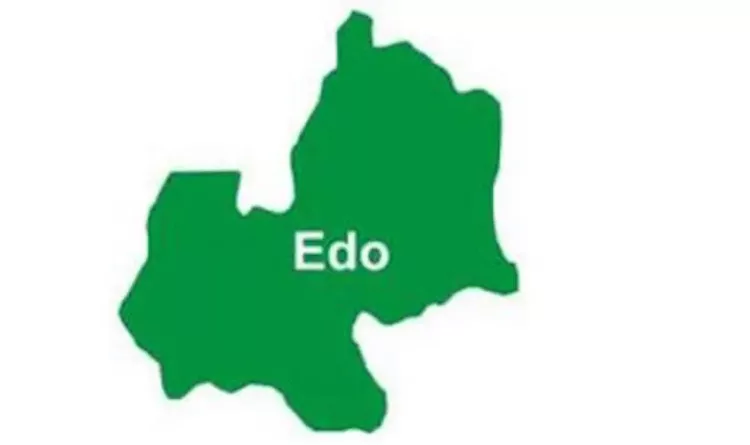
DURING the build up to the primary elections by the three dominant parties in Edo State, one of the most talked about social phenomenon by the electorates was Identity Politics. This promiscuously used social construct which became something of noise words on several social media platforms almost took the mantle of religious arrogation. Replacing this two words with Politics of Recognition, discussants made the point that zoning, which was associated with the construct, makes it possible for voices of minority ethnic groups previously disenchanted to be heard and represented in Edo State politics.
Edo State is divided into three disproportional senatorial districts: Edo North, Edo Central and Edo South. Edo South has the highest voting strength while Edo Central has the lowest. And as the argument was being factored, without negotiations of zoning, the minority Edo Central and Edo North might not easily be able to produce the governor of the state anytime soon. So the proponents of the egalitarian mechanics in democracy of zoning argued that without this, there would be marginalization of the minority people in the state. We are all aware that elections offer the electorates chances to express their citizenship, and also have access to material comforts from the government. So the electorates ordinarily want to be part of governance.
No doubt, Identity Politics have become a much talked about phenomenon in Edo State by different ethnic groups structured into the aforementioned districts. The identification of members of these groups based on common attributes such as language, culture and ethnicity, geography etc no doubt indicates that there exist structured identity.(The Edo central and south are more homogenous compared to Edo north)The mobilization based on these attributes is called Indentity Politics. Identity Politics is an attempt to attain some measure of representation in politics. It is a kind of assertion of selfhood that relies more on differences from other group more than any other factor.
This gave birth to the idea of Esan Agenda; a birthed argument from the recent political history of the state that it is the turn of the Esan people to govern. Although several of my acquintances who are also identitarian deconstructionists like the poet and philosopher, Kingsley Jesuorobo Esq, Elder Clifford and others viewed Identity Politics differently. While some agreed it gives a sense of inclusivity, equity, justice and fair play…to ethnic nationalities, others distanced themselves from the notion as being too narrow, breeds disunity, is undemocratic and exits competence. They frowned at what they called the divisive nature of the phenomenon which was bedded in zoning. They claim the idea undermine the unity of the state which inherently ought to be screwed to collectivity and universalism, not particular-ism.
This controversial social phenomenon was looked by some from the largest voting block as well as Edo North from several intersectional perspectives. They argued further that Identity Politics will leave the people plagued with prejudice and biases – something they wish to cure. They were however not left without any form rhetoric from those championing the idea, including me. We argued that without zoning, the minority tribes in Edo State will face systematic political oppression by the more populated ethnic groups. That to ensure no ethnic group, no matter how loosely they are co-joined, Identity Politics will make sure no one group will be dis-proportionally left out of governance.
Those opposed to Identity Politics could not argue convincingly that no matter what we think, humans will always be humans, and that part of their instinct is that they will ordinarily identify with the community they were born into or take their identity from. Even as they argue that the perceived marginalized should be integrated into the mainstream politics rather than continue to perpectuate idea of marginalization through Identity Politics of differences, they failed to convinced us that hegenomy is an inherent ideology in politics.
Even when they also failed to decongest their thoughts from the fact that identity is part of human nature, they claimed Identity Politics is inimical and part of divide and rule strategy by the ruling class. They argued that Identity Politics diverts attention from more fundamental issues.
The argument ended after the primaries where the Peoples Democratic Party, PDP, fielded Asue Ighodalo Esq, the Labour Party, LP, fielded Olumide Akpata Esq, while the All Progressive Congress, APC, fielded Senator Monday Okpebholo.
Now, the identity labels have been discarded. The thug of war has graduated to arguments on competence, track record and proficiency. The electorates are busy, like those playing bets, interrogating the profiles of the three candidates as to be able to make informed decisions. The 2023 general election has shown there a huge population that are not carbuncles to political parties – they are the undetermined. These group will not vote along political party lines, but based on their convictions about the candidates of their choice.
Competence to do the job will be a major factor over Idenfity Politics because Edo State will need a governor who will be able to judiciously deploy scarce resources to address issues of healthcare, empowerment, quality education, infrastructural deficit, economic revival, poverty, agriculture, energy and other sundries.













